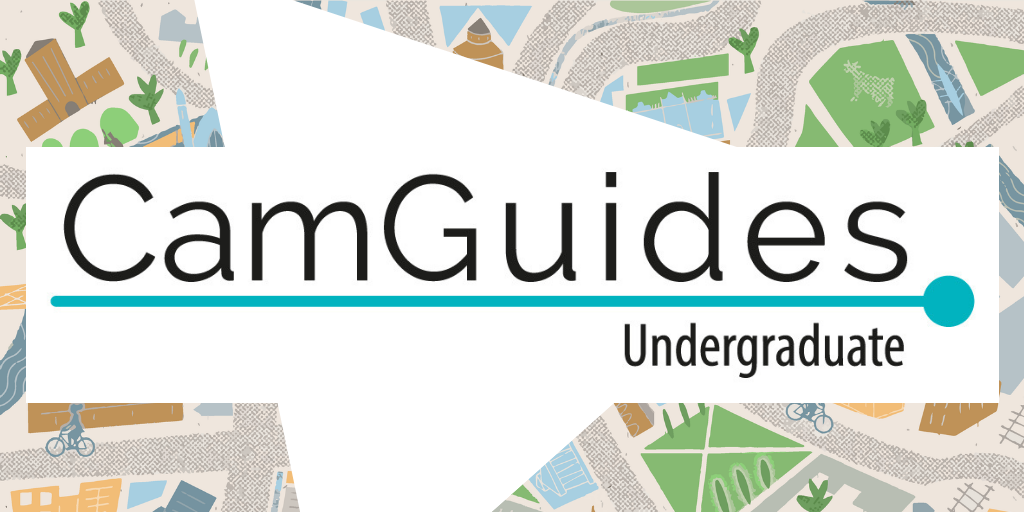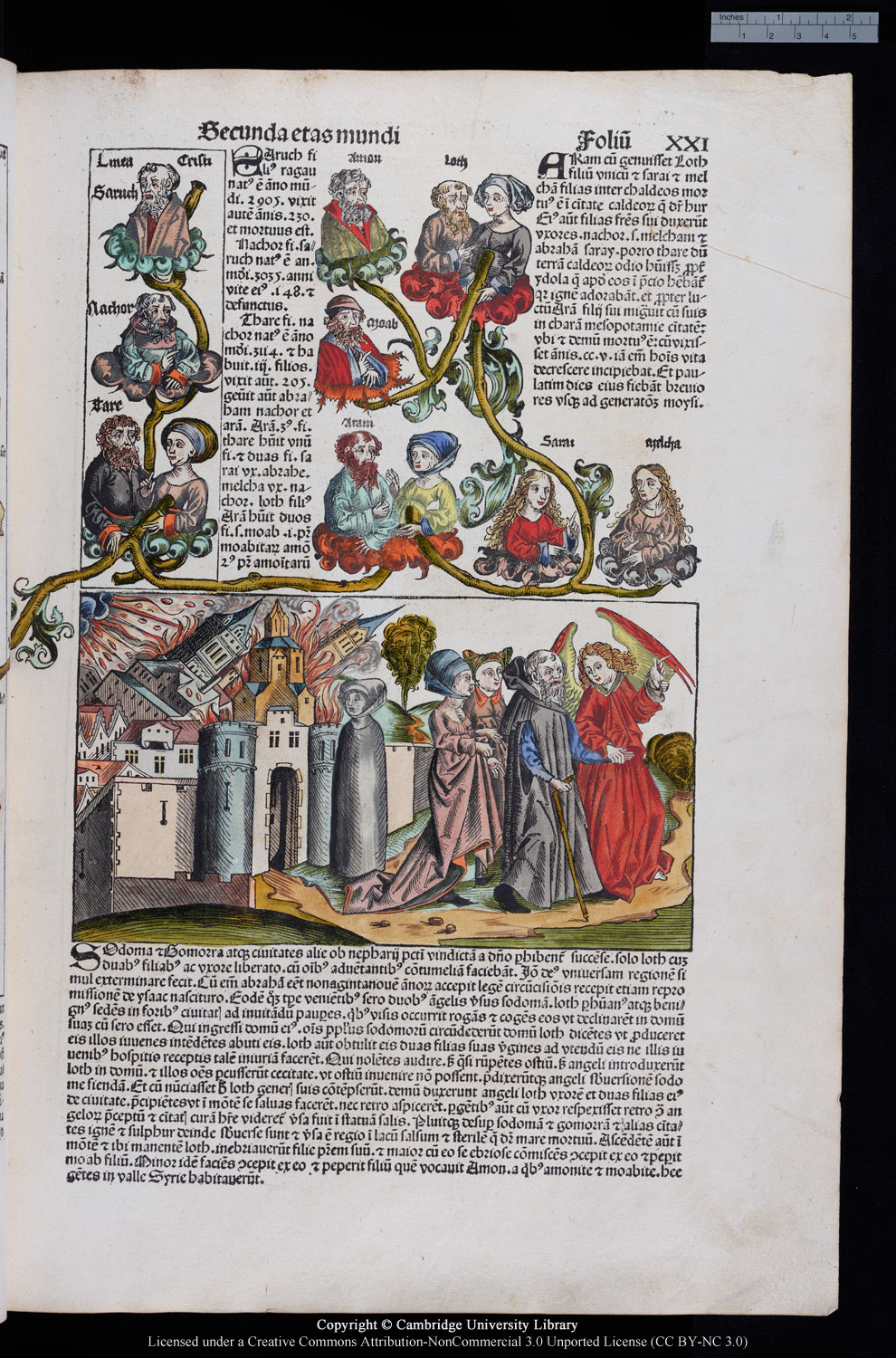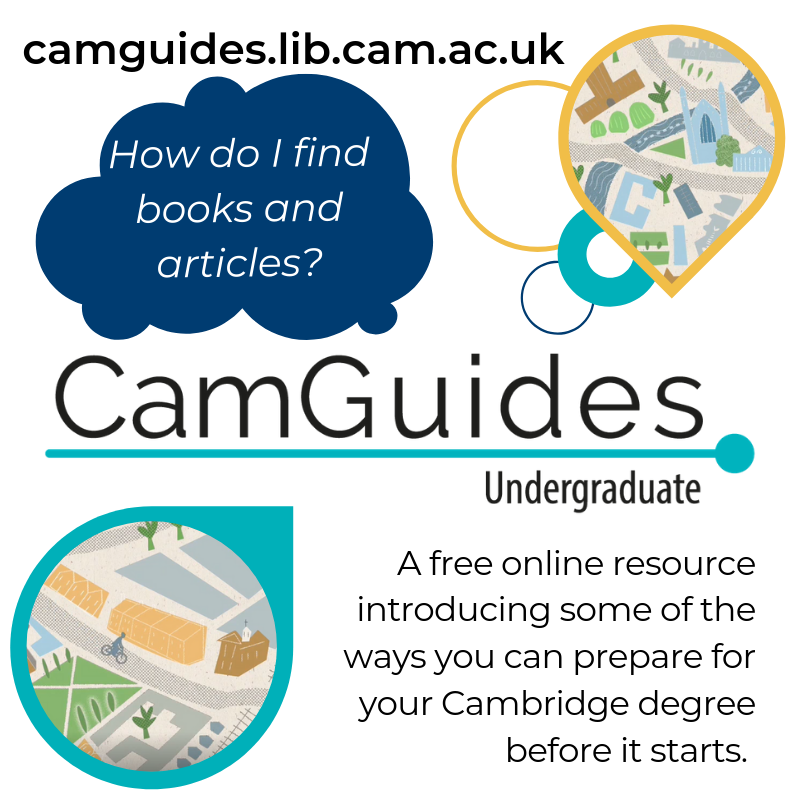Spotlight: Open Educational Resources
Developing CamGuides as an Open Educational Resource
You may not have heard of the Cambridge Information Literacy Network (CILN), a group of library staff from across Cambridge University Libraries working on projects and networks relating to information literacy, but you may have come across one of its key outputs, CamGuides. This is a resource, part-funded by the Teaching and Learning Innovation Fund, designed to support the transition of new undergraduate and "taught" Master's students to Cambridge, regardless of their college, discipline or background. It introduces some of the information, academic and research practices that Cambridge students commonly use during their degrees, reducing the learning load once they arrive in Cambridge. CamGuides is delivered entirely online, openly, and is licensed to permit reuse, redistribution and remixing with few restrictions. As a result, CamGuides qualifies as an Open Educational Resource, or OER.

An OER can be defined as a teaching, learning or educational resource that can be freely used and reused with few, or indeed no, restrictions. It is different from a MOOC (a "massive online open course"), where the course content is not necessarily licensed for reuse. CamGuides is by no means the first or only OER produced by staff at the University of Cambridge, but it's fair to say that we are, as an institution, slightly behind others in the UK with regard to open education.

When we consider "openness" at Cambridge, we probably think about making something accessible to the public, without admission criteria and without cost. Certainly within the library community in Cambridge, discussions of openness centre on open access and, increasingly, open research, with the goal of making research output publicly available. We might also think of the significant efforts to digitise our resources with the Cambridge Digital Library and the role this plays in providing access to our extraordinary collections to a global audience. OER, then, rests on a different interpretation of 'openness', defined as "the ability to modify and use materials, information and networks, so education can be personalised to individual users, or woven together in new ways for large and diverse audiences" (Open Education Consortium).
A decision to produce an OER is often borne of philosophical or pedagogical considerations, but for the CamGuides team it began as a purely practical decision. As CamGuides is aimed at students who haven't yet arrived in Cambridge, before they've been issued with usernames or passwords, and potentially even before they've submitted applications, we needed to explore delivery of the resource online, freely and without any requirement for user authentication. We realised that we would need to license publicly available content in some way, and so started to explore what it might mean to create an OER.
There were two main barriers for the CamGuides team. First, we had to consider the implications of having the material we created reused and edited by others from outside our institution, and weigh up the risks involved of having our material misused, and the University subsequently misrepresented. We decided that these risks were fairly minimal: the content of CamGuides is general, uncontroversial and unlikely to change radically or fall out of date quickly. Second, we had to make sure that (aside from content created ourselves) we only used materials which were licensed under the same terms as our Creative Commons licence, or even less restrictive. Where this wasn't possible, we had to make it completely clear that our own Creative Commons licence did not cover the material in question. The learning curve on the various Creative Commons licences available was steep, even for a group of librarians!
We also had to decide whether we wanted to set any restrictions on the use of our content. There is a range of licences which qualify as OER, and we selected one of the stricter ones: CC-BY-NC. This means that others can reuse, remix and redistribute the content, materials and structure for free and without permission, with only two limitations: that attribution is given to Cambridge University Libraries, and that reuse is only permissible by non-commercial groups. Even less restrictive OER licences may allow reuse etc. without the need for acknowledgement, or by commercial as well as non-commercial groups.

On balance, any challenges encountered in developing CamGuides as an OER were outweighed by the benefits. Our experience was positive because our content was standalone, self-directed by design, and required no intervention from a 'teacher'. This means that both those within and those outside the institution are able to make broader use of its content, with the potential to push it beyond its original goals and purpose. For example, the CILN blog tells the story of how a section of CamGuides for Undergraduates was copied, remixed and reformatted by staff at the English Faculty Library when designing a workshop on study skills for Sutton Trust students. Using OER means that we in the library community in Cambridge are able to draw on the expertise of our colleagues freely, and suggests that we welcome those from other institutions to do the same. It speaks strongly to the value that we in the Cambridge library community place on openness and collaboration.
Author

Helen Murphy is the librarian at the English Faculty Library and is part of the Cambridge Information Literacy Network. She was one of the developers of CamGuides for Master's students, and is currently collaborating with colleagues on a short online open course called Framework Five, aimed at supporting the information literacy skills of library staff.
Cambridge Teaching & Learning Newsletter vol. 1 (issue 3) January 2020
